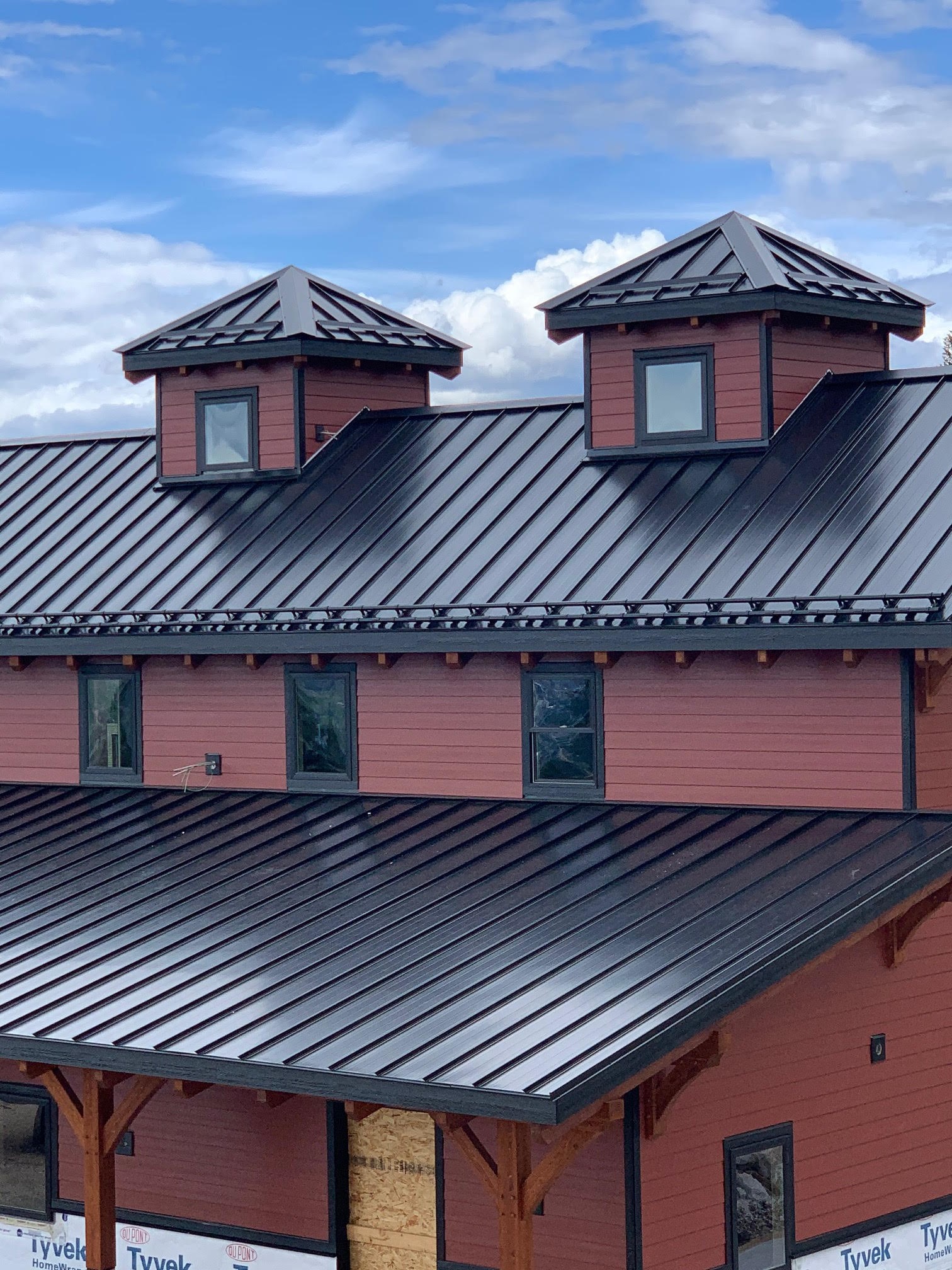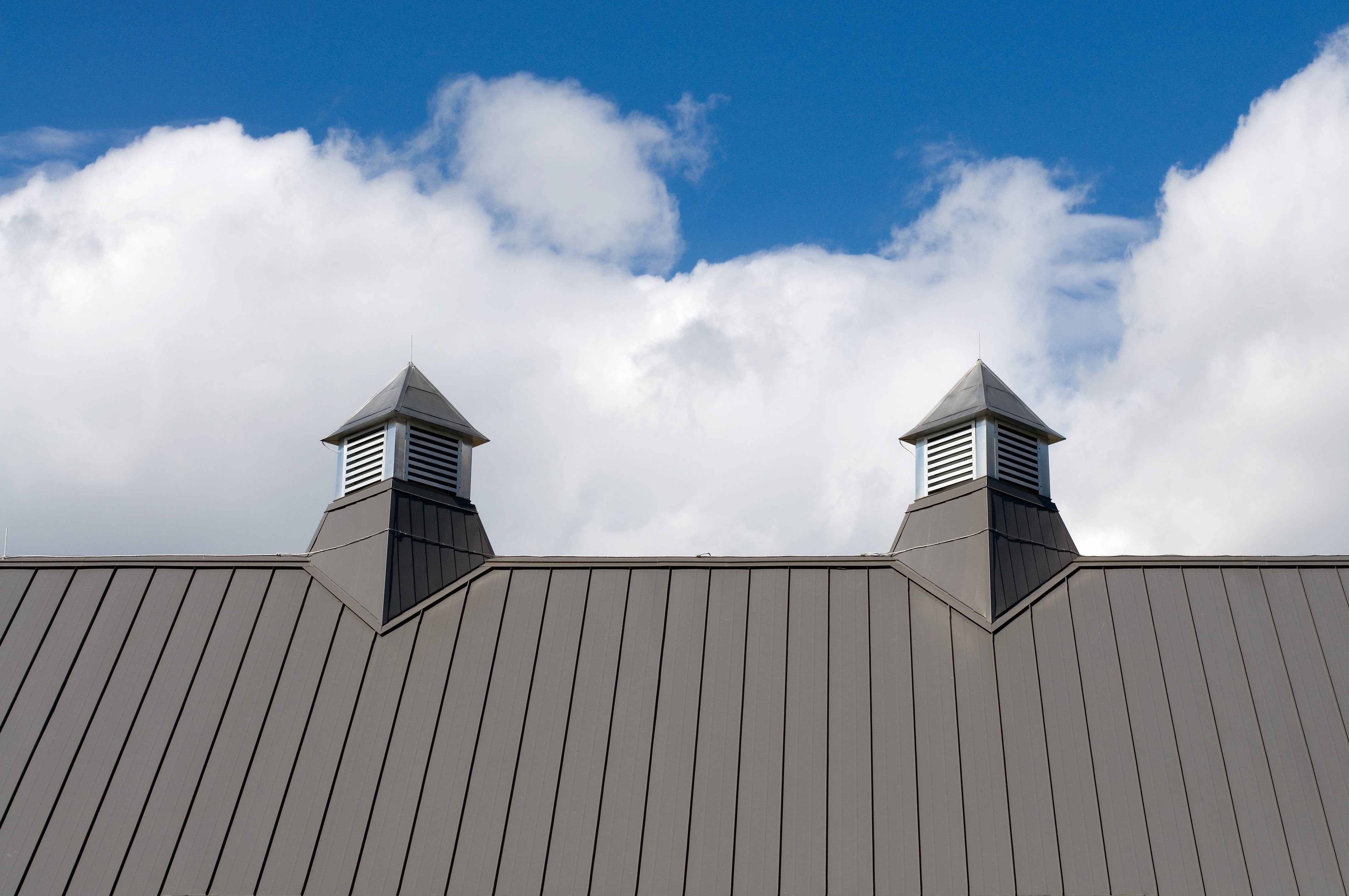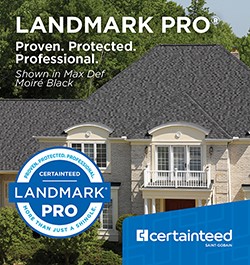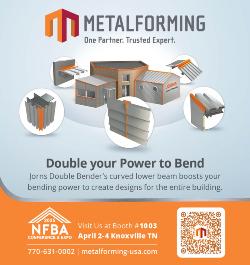Metal roofs are quieter than homeowners may expect
January 20, 2025 at 3:00 p.m.By Ali Turner, S-5!®
Dispel this common myth among homeowners and start becoming a metal roofing expert today.
Have you ever heard the claim that metal roofs are loud during rain or hail? It’s time to set the record straight on this misconception! Let’s discuss how a modern metal roof’s construction effectively dampens sound.
It’s what’s on the inside that counts!
As the saying goes, “It’s what’s on the inside that counts,” and that’s very true for lessening noise on a roof. If you’ve ever stood inside a tin-roofed, open-frame barn during a storm, you likely heard raindrops as they hit the roof. Sure, that can evoke nostalgia for some, but for most homeowners and building owners, hearing every raindrop is not ideal.
Think of a metal roof as a bell. When a metal roof is over open framing with no insulation or decking, and rain hits the roof, it can be quite noisy. The metal is resonating and passing the sound through to the inside. But, when metal panels are installed over fiberglass insulation, underlayment and decking, it’s like putting your finger on a bell. These components absorb much of the sound, making it just as quiet as any other roof.

(Left) Insulation, underlayment and decking help buildings with metal roofs stay quiet on the inside.
1 – Insulation
Insulation helps keep buildings cool in the summer and warm in the winter, and it also absorbs sound. There are many different types of insulation for buildings, and they all have different sound-absorbing properties. Fiberglass or cellulose insulation have excellent sound absorption characteristics, while hardboard insulation does not. Structural Insulated Panels (SIPs) with interior hardboard, exterior hardboard and rigid foam insulation between have the least efficient soundproofing acoustics, and this is true for both metal roofs and shingle roofs.
2 – Underlayment
Underlayment is an additional layer of moisture protection underneath metal panels that also dampens sound. Whether you’re using a felt, synthetic or self-adhered underlayment, the protective layer is going to add to the soundproofing of your metal roof system.
Sound transmission loss is the ability of an acoustic barrier, such as a roof underlayment and insulation, to reduce the amount of sound transmitted through it. To learn more about the acoustical performance of metal roofing insulation, check out the design guides from the Metal Building Manufacturers Association.
Panel gauge and roof pitch
Thicker gauges of metal roofing will dampen sound more efficiently than thinner options because they are less prone to vibration. Thinner gauges of metal roofing panels have less rigidity, meaning sound from hail and rain is more likely to resonate through. However, a full assembly, including insulation and underlayment, will work harmoniously together to create adequate soundproofing no matter the panel gauge.
A metal roof’s pitch, or steepness, also plays a role in how quiet it is. On a steep metal roof, the intensity and sound of falling rain is reduced when compared to a 90º impact on a flat roof.
Metal versus asphalt: Which is quieter?
For a refresher on why metal is the best investment for your roof, check out our blog that compares metal and asphalt shingles. When it comes to noise reduction, asphalt shingles are not going to provide a benefit over metal roofing. Typically, when rain falls on asphalt shingles, the sound it creates is measured at 46 decibels. On a metal roof, it’s 52 decibels. What does that mean? Since humans can only distinguish sound variances at a threshold of 8 decibels, the difference between the two roofing materials and their noise transmittance is negligible.

(Right) Metal is not noticeably noisier than other roofing materials.
On The Build Show, sponsored by the Metal Roofing Alliance, host Matt Risinger busts the myth that metal roofs are noisy. “I don’t believe you’re going to hear any noise from a metal roof compared to any other roofing material,” Risinger said. Watch him break down this myth on “The Build Show."
Ideas to hold on to
It’s important to note that correct installation of all these roofing components is crucial. With a proper assembly, which includes the roof deck, underlayment and metal panels, the decibel level of rain and hail on a metal roof is not noticeably louder when compared to asphalt shingles.
Interested in learning more? Visit our Resource Center on our website to read more blogs, articles and case studies. Enroll in S-5-University to become a metal roof expert!
Learn more about S-5! in their Coffee Shop Directory or visit www.S-5.com.
























Comments
Leave a Reply
Have an account? Login to leave a comment!
Sign In